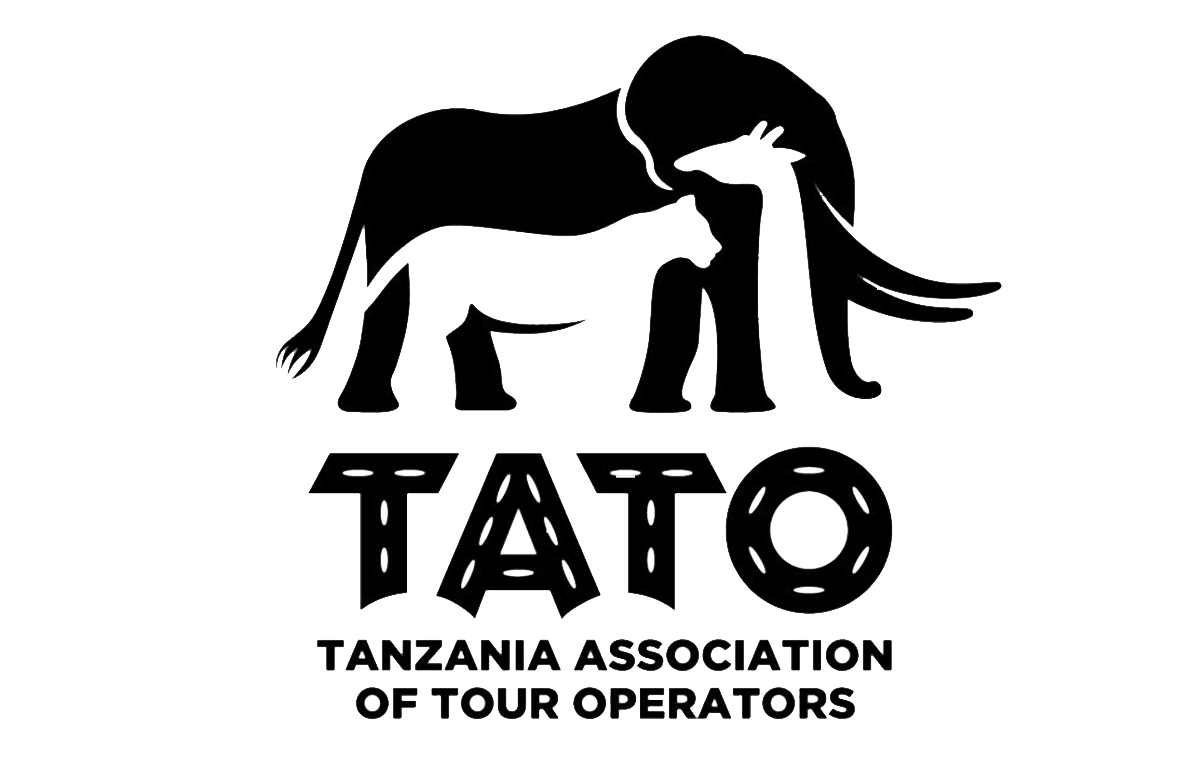Enhancing Responsible Tourism at the Mara River – Mara River Migration Crossings Guideline
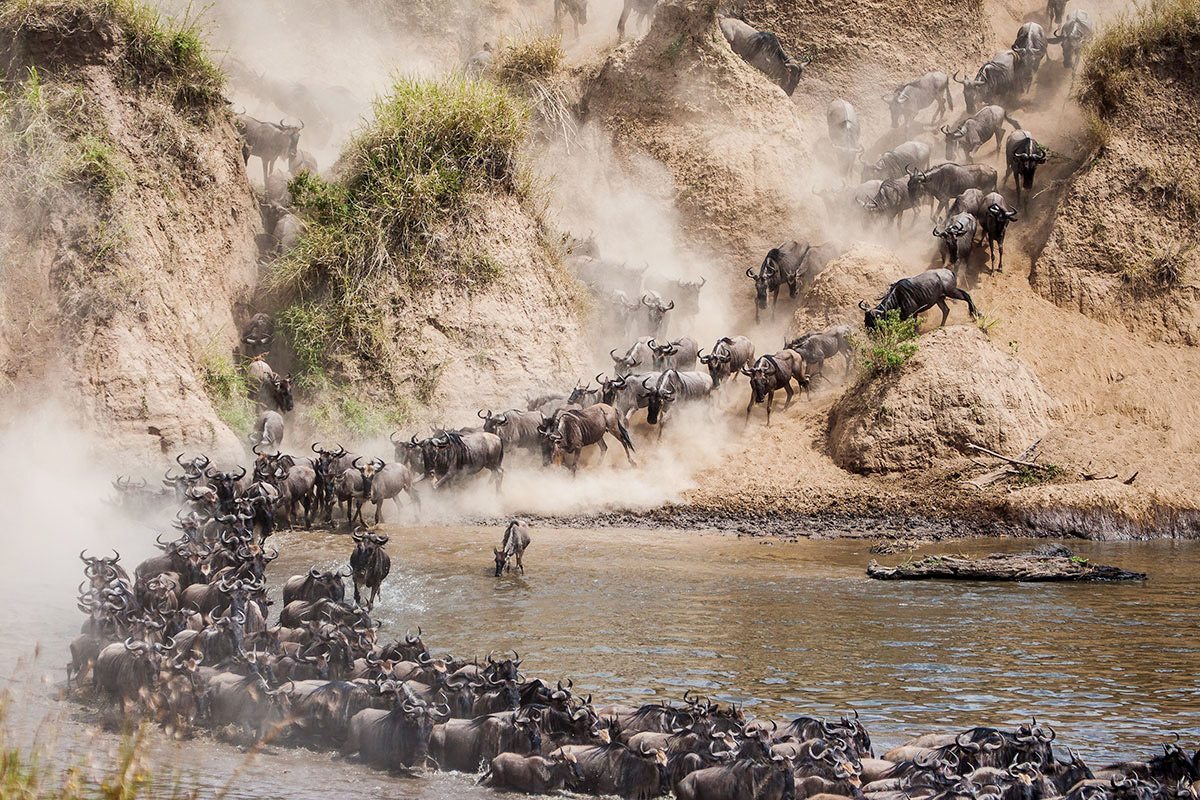
The Tanzania Association of Tour Operators (TATO) commends the recent release of the official Mara River Migration Crossings Guideline by the Serengeti National Park management. This comprehensive document, revised in July 2024 and supported by the Serengeti Conservation Project in partnership with the Frankfurt Zoological Society and Eleanore Beck Stiftung, outlines strict operational rules designed to protect the integrity of the Great Migration, a global natural heritage and a crown jewel of Tanzania’s tourism sector.
The Importance of the Great Migration
The Great Migration, a phenomenon involving over 1.35 million western white-bearded wildebeest and thousands of zebras and gazelles, remains one of the world’s most iconic wildlife spectacles. Occurring within the Serengeti-Mara-Ngorongoro ecosystem, this migration sustains ecological balance while driving the socio-economic fabric of Tanzania’s tourism industry. As a keystone species, wildebeest play a crucial role in maintaining the grassland ecosystem by consuming over 1.7 million tons of grass annually and depositing approximately 3,500 tons of dung each day, feeding up to 100 species of dung beetles and enriching soil fertility.
With over 250,000 calves born annually, many within just a few weeks, the calving season (primarily in February) attracts a surge of tourists and predators alike, underscoring the need for well-regulated wildlife viewing to ensure both animal safety and tourist enjoyment.
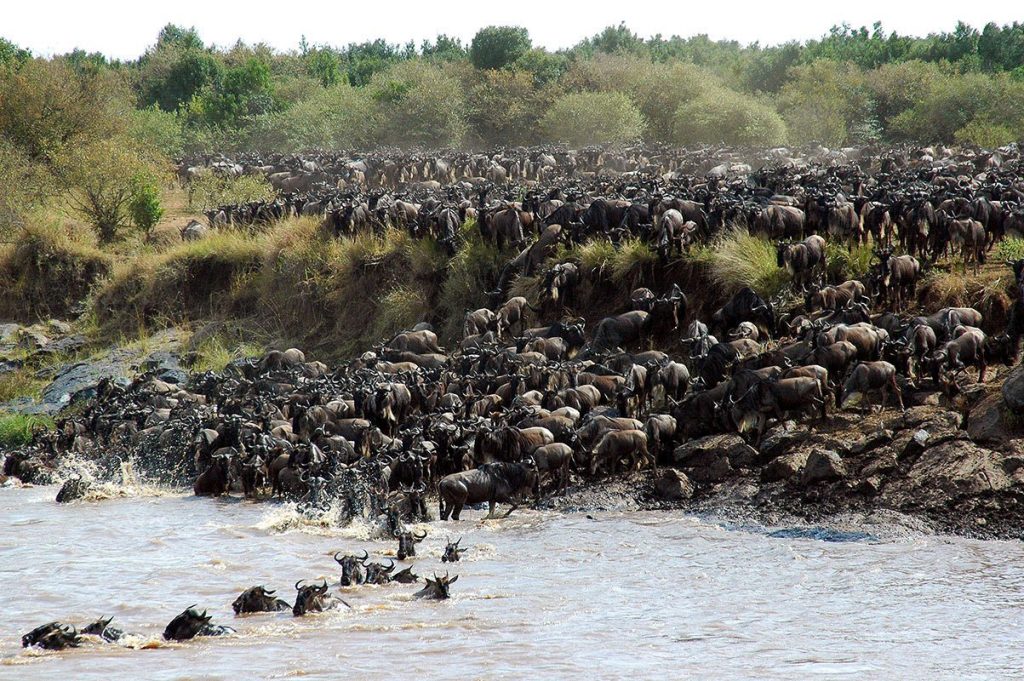
The Mara River Migration Crossings Guideline: A Milestone in Conservation
Prompted by growing concerns over unethical tourism behavior, such as vehicles blocking migration routes, guests disembarking during crossings, and unregulated crowding, the Serengeti National Park has established new binding rules for all river crossing visits. These include:
- Designated Viewing Zones: Vehicles must park only at marked crossing points with signposts indicating their location, allowed distances from the riverbank, and vehicle limits.
- Vehicle Conduct: Once migrants are congregating or crossing, vehicles must remain stationary. Approaching wildlife or blocking their path is strictly prohibited.
- Visitor Safety: Tourists must remain inside vehicles at all times unless in emergency situations.
- No Picnicking or Table Setup: All recreational activities such as meals and table arrangements near the riverbank are banned.
- Conservation Zones: Park management may declare certain areas off-limits during breeding seasons or in case of road degradation due to rains.
These Mara River Migration Crossings Guideline rules are not only designed to preserve the health of the ecosystem but also to ensure that visitors enjoy a responsible, immersive, and safe wildlife experience.
TATO’s Role in Ethical Tourism Advocacy
TATO, as the leading voice of Tanzania’s private tourism sector, welcomes these conservation measures and has actively worked to address unethical safari practices through guide training, public awareness campaigns, and lobbying efforts.
In 2025 alone, TATO trained over 1,000 safari guides across Tanzania, focusing on professionalism, sustainability, and ethical conduct, particularly in preparation for the busy migration season. These trainings include the TATO Safari Guide Code of Conduct and Ethics, now available in nine languages to accommodate diverse user needs. The Code serves as the foundation of responsible guiding in Tanzania’s national parks and game reserves.
Furthermore, TATO has been instrumental in advocating for better enforcement of existing laws and cooperation between park authorities and private operators to safeguard Tanzania’s natural capital.
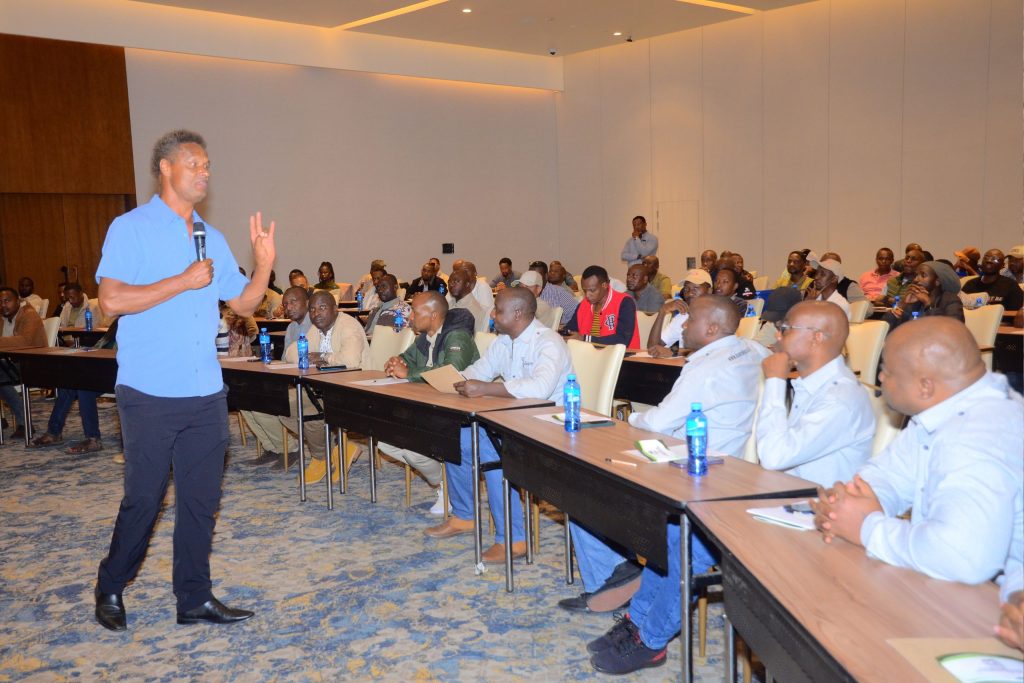
Why the Mara River Needs Special Attention
The Mara River is the only perennial water source in the Serengeti capable of sustaining wildlife during the dry season. If compromised, whether through upstream damming, deforestation, or climate stress, up to 500,000 wildebeest could perish in a single dry season, according to current estimates.
Protecting the Mara River is thus not just a conservation concern but a vital national interest. TATO is proud to align its values and programs with efforts to ensure the river’s continued flow and the migration’s long-term health, guided by the Mara River Migration Crossings Guideline.
Ensuring Compliance for a Shared Future
The Mara River Migration Crossings Guideline is a timely reminder that Tanzania’s tourism industry must evolve not only to accommodate growing interest but also to uphold ecological integrity. TATO strongly encourages all its members and partners to:
- Educate guests on ethical behavior during safaris, particularly during the migration season.
- Display and adhere to the Mara River Migration Crossings Guideline in every vehicle and lodge near the Serengeti.
- Report any cases of non-compliance to park authorities via the official channels listed below.
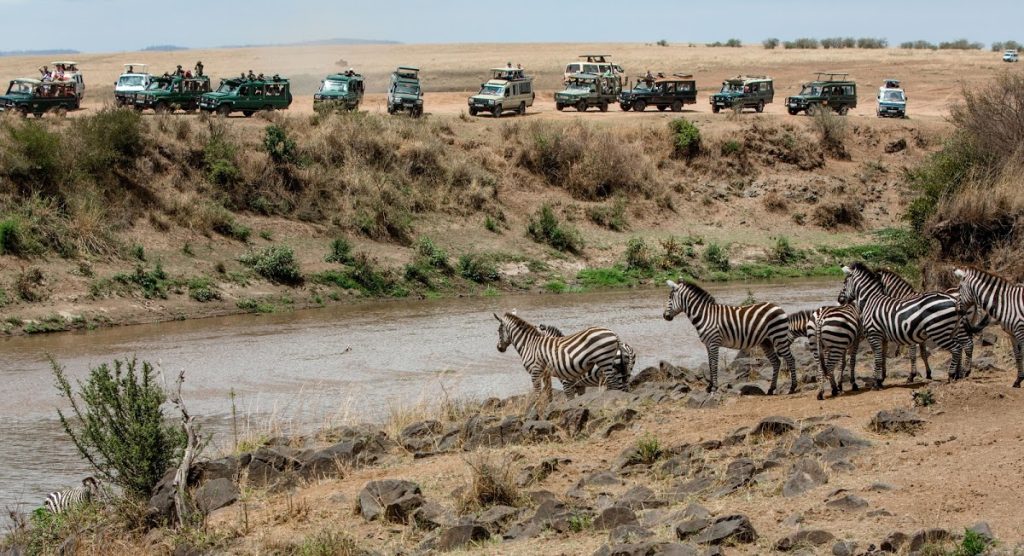
For concerns or incident reporting:
- Email: serengeti.tourism@tanzaniaparks.go.tz
- Hotline: +255 689 062243
- Website: www.tanzaniaparks.go.tz
Conclusion
As global attention turns once more to the awe-inspiring migration, TATO renews its call for a unified industry stance on conservation, sustainability, and professionalism. The release of the Mara River Migration Crossings Guideline is a significant step forward, and TATO is proud to stand with TANAPA and Serengeti National Park management in safeguarding this heritage.
Let us protect the wonder that is the Serengeti, for today, for tomorrow, and for all generations to come.
For more information on the Safari Guide Code of Conduct and Ethics or to participate in upcoming conservation and training programs, email info@tatotz.org .
